|
I’m writing this blog while sitting on a patio at an AirBnB in Sedona, Arizona overlooking a beautiful landscape of red rocks and green trees. My sister is walking hand-in-hand in the grass with her 10-month-old daughter who just learned how to walk. The sun warms my skin, and the breeze cools my face after a challenging hike this morning. Being immersed by the great outdoors draws my mind to St. Francis of Assisi. I chose him (or some say that he chose me) to be my Confirmation Saint because of my love for peace and creation. The views of town from this house on a hill remind me of the small mountain town of Assisi. When I visited there, I could feel St. Francis’ presence as I was awestruck by the beauty around me and the peace within me. His tomb is one of the most peaceful places I have ever been. The energy of his presence is palpable in that room, and his legacy continues as people flock to where his bones eternally rest in peace. Energy is a popular term around Sedona since this area is believed to be a “vortex.” A vortex is a “swirling center of energy that can produce a range of physical, emotional, and spiritual effects.” (Sedona.net). According to VisitSedona.com, “Sedona has long been regarded as a place both sacred and powerful. It is a cathedral without walls. It is Stonehenge not yet assembled. People travel from across the globe to experience the mysterious cosmic forces that are said to emanate from the red rocks.” Energy is indeed a scientific reality; all creation gives off a certain energy. A woman has a feminine energy that complements a man’s masculine energy. Someone can either bring enthusiastic energy into a room or suck all the positive energy out of it. The Church embraces science and affirms scientific truth as God’s truth. St. Francis loved creation and had a deep spirituality. At the front door of a Sedona New Age shop, a St. Francis statue welcomes patrons. The New Age belief is that “there is no spiritual authority higher than personal experience.” St. Francis loved creation because he loved the One who created it all. He encountered God in all things, even though everything is not God. On one of the main vortexes surrounded by valleys and mountains rests The Chapel of the Holy Cross. It proclaims peace over all who enter. The larger-than-life crucifix is a reminder that Jesus is who we must seek in the heart of all creation. The Pontifical Councils for Culture and Interreligious Dialogue released a document in 2003 entitled “Jesus Christ the Bearer of the Water of Life: A Christian reflection on the New Age.” The following is a brief excerpt: "Gaia, Mother Earth, is offered as an alternative to God the Father… there is talk of God, but it is not a personal God; the God of which New Age speaks is neither personal nor transcendent… belief in cosmic powers and some obscure kind of destiny withdraws the possibility of a relationship to a personal God revealed in Christ. For Christians, the real cosmic Christ is the one who is present actively in the various members of his body, which is the Church." We all have different ways of praying and experiencing the power of God. If you have a spiritual encounter with nature, give thanks to the Holy Spirit for this beautiful connection to God’s creative energy. St. Francis loved being outside, but he did not make an idol of nature. We should not replace the Creator with creation. The Trinity invites us into a beautiful dance of love that is called “perichoresis.” In a humble attempt to create a metaphor, I could suggest that creation is the ballroom, dance floor, and the music that the Triune God created in order to help us dance with Him more beautifully. Creation brings us joy, peace, and refreshment, but it is not the ultimate source. We need to let God lead. Like an astonishing view on a mountaintop after an arduous hike, the Chapel of the Holy Cross radiates the message of mercy. Mercy is most beautifully defined as love touching misery. Though we suffer in this life, the love of God is always pursuing us. After the Feast of St. Francis, we celebrate the Feast of St. Faustina. She was an advocate for Divine Mercy and the Church has embraced her diary. She writes: “Creation is contained in the inmost depths of the Divine mercy more deeply than an infant in the mother's bosom.” (Diary 421, 1076) “Rejoice, all you creatures – she wrote – for you are dearer to God in His infinite mercy than a baby to his mother's heart.” (Diary 423) “Jesus, Eternal Light, enlighten my mind, strengthen my will, inflame my heart and be with me as You have promised, for without You I am nothing.” (Diary, 495) St. Faustina and St. Francis were both aware that without God they were nothing. Autumn reveals that beauty can come from “falling” or “dying.” As the leaves die and fall to the ground, they fill the sky with beautiful color before landing gently on the firm foundation. As this new season begins, I invite you to go on a walk outside and take Faustina or Francis with you. They are wonderful companions and would love to help you find the love, peace, energy, and mercy of Jesus Christ. Any nature that captures your attention is just a tiny glimpse of the masterpiece that God created in YOU! Here is a PDF of St. Francis’ Canticle of the Creatures: https://www.xavier.edu/jesuitresource/online-resources/documents/canticleofthecreatures-whitebackground.pdf Here is a sung version by Donna Cori Gibson: https://www.youtube.com/watch?v=9uxGrQ5cQpc
3 Comments
This coming Sunday, to close out the Easter Octave, we will celebrate Divine Mercy Sunday. Devotion to Divine Mercy started with St. Faustina in the early 1900s and Divine Mercy Sunday became officially recognized by Pope John Paul II in 2000 along with the canonization of St. Faustina. Growing up, I would hear a homily about the image of Divine Mercy every Divine Mercy Sunday, but it wasn’t until I was introduced to the Divine Mercy Chaplet that I began to understand more about the overall message of Divine Mercy.
The Chaplet of Divine Mercy is a devotion that was started by St. Faustina from her visions of Jesus. It is a series of prayers that can be said on rosary beads, albeit usually much quicker than a rosary, that is especially connected to Divine Mercy Sunday. What particularly strikes me about the Divine Mercy Chaplet is how many of the prayers end with “us and the whole world.” Both the Eternal Father prayer, the prayer said on the “Our Father” beads, and the prayer said on each of the “Hail Mary” beads ends with this emphasis on “us and the whole world.” I began to understand what Divine Mercy meant when I thought about mercy not just in terms of myself, but about the whole world, both my closest friends and people I had never met. The message of Divine Mercy is that through the mercy Jesus shows us, we are called to be merciful and in harmony with all of our brothers and sisters throughout the world. Our inward journey of mercy ultimately leads us outward to living a merciful life. For me, I am reminded of the Beatitudes and the call for everyone to be merciful, peacemakers, and more (Matthew 5:3-12). However, I have found myself struggling with how I, a college student, can live out this mercy to the “whole world.” How can I show mercy to the “whole world” during the COVID-19 pandemic when we cannot travel? These are some of the questions I find myself grappling with when thinking about how to live out a life of Divine Mercy. When I think about Divine Mercy, I think about God’s abundant love for us and how we are called to share that love with all our brothers and sisters. In that, I mainly think about community service opportunities I have had while in college to go on both service and justice immersion trips around the country, as well as locally in Washington, DC. But I also thought about doing little acts of service throughout the day. I think just as we can do little acts of service throughout the day, we can do little acts of mercy to spread a consistent ethos of mercy. As Mother Teresa is attributed with saying, “we cannot all do great things. But we can do small things with great love.” In my daily life, I have learned that there are many ways that we can treat people with mercy and love, bringing the ethos of Divine Mercy to our daily lives. A lot of this includes little things, such as: not getting upset when the cafeteria food takes twice as long as normal to be made, receiving and giving criticism in group projects and assignments with love rather than having an attitude of superiority, and being adaptable and understanding when situations change, especially with COVID-19. Over the years I have seen some commercials advertising “pass it on” campaigns in terms of good deeds, but I think that idea also applies to living in a merciful and loving way. Our mercy spreads to the “whole world” through us being merciful to someone who is in turn merciful to many more people. As we approach and celebrate this Divine Mercy Sunday, let us think about ways that we can live a life of Divine Mercy every day. “Extend your mercy towards others, so that there can be no one in need whom you meet without helping. For what hope is there for us if God should withdraw His Mercy from us?” – Saint Vincent de Paul (attributed) To learn more about the corporal and spiritual works of mercy, please click here.
We may be well-acquainted with Lenten practices and devotions such as giving something up, abstaining from meat, or praying the Stations of the Cross. It can be more difficult, however, to name ways to observe the Easter season.
Yet in the Preface of the Eucharistic Prayer at every Mass during the Easter season, we hear: “It is truly right and just, our duty and our salvation, at all times to acclaim you, O Lord, but in this time above all to laud you yet more gloriously, when Christ our Passover has been sacrificed… Therefore, overcome with paschal joy, every land, every people exults in your praise and even the heavenly Powers, with the angelic hosts, sing together the unending hymn of your glory…”[1] What is “paschal joy” and how do we praise the Lord “more gloriously” in the Easter season? It is unreasonable to expect anyone to will themselves to be happy at any given moment, much less for an entire season. But joy is not the same as happiness, nor is it the absence of sadness. Joy is a fruit of charity. It flows out of love; it results from a participation in goodness. We feel joy in the presence of someone or something we love; we rejoice in the well-being of our loved ones. If our Lenten observance is focused on charity—particularly acts of charity such as prayer, fasting, and almsgiving—then joy flows naturally from them. The disciplines that turn our gaze outward to God and neighbor, the sacrifices we make, are all a participation in goodness, an act of love. Paschal (Easter) joy, then, can be seen as the fruit of our Lenten journey. Our Lenten efforts are not meant to be temporary measures. They are intended to effect lasting change in us, to conform us more profoundly to our Lord who died but has been raised. What can we do then, so that we don’t simply drop our Lenten observance now that Easter has arrived? How can we instead allow these observances to take root in such a way that they enable us to celebrate the Easter season more fully and joyfully? Consider one or more of the following suggestions to cultivate paschal joy and fill each of the fifty days of the season with festivities and devotions:
Click here for more resources to accompany you this Easter season. [1] Preface I-V of Easter, Roman Missal, Third Typical Edition. [2] Directory on Popular Piety and the Liturgy, no. 150, no. 152. [3] Directory on Popular Piety and the Liturgy, no. 153. [4] Directory on Popular Piety and the Liturgy, no. 154. [5] Directory on Popular Piety and the Liturgy, no. 155. [6] Cf John Paul II, General Audience, Wednesday, 30 May 1979 "…we constantly find the tension between what man is and what he would like to be; between that which has been realized and that which remains to be accomplished. And it is patience which endures this tension." -Romano Guardini, Learning the Virtues That Lead You to God, 1963, 39. It turns out I really am not a huge fan of working out. After retiring from professional soccer in 2018, I’ve found it quite difficult to motivate myself to exercise when it is not formally baked into my day and when I am not paid to do it. I like being fit, but not the effort and time it requires. There is another reason, however, that I do not like working out, which is: I am impatient. Rather than committing to a regular schedule and planning the workouts to be manageable in difficulty, I go sporadically and push myself to a near death experience. Every. Single. Time. Behind my mindset is a deeply embedded impatience with the process of becoming fit. I want the result without the process—which is not possible. I want to become fit through the course of one rigorous workout and overstep the gradual process that it takes to become a fit person. In sports there is the common—and helpful—phrase of “trust the process.” What this means in the sporting world is that there is a necessary process of development that every athlete must go through in order to become good or great at his or her sport. It means that no one can go from ‘beginner’ to ‘expert’ without passing through ‘proficient’. There is a development in sport—and life—lodged in the school of gradual growth rather than immediate transformation. This frustrates us. All of us have some idea of who we would like to be, which is then immediately confronted by the reality of who we are. What enables us to endure this gap between idea and reality is what we call patience. Patience is needed where there is a desire not yet fulfilled. Case and point—my workout saga. I want to be fit (idea) but am not (reality) and therefore need patience to trust the gradual process of becoming fit. Patience is the virtue needed to shorten the gap and become who I want to be. There is another phrase in athletics related to “trust the process,” which is, “love the process.” What this means is that the best thing an athlete can do on the road to athletic development is not only trust that skill is only developed over time with effort, but that coming to enjoy that slow and gradual development is an extremely beneficial thing. The great athletes do this. There’s a reason you hear so many stories of the best athletes, from all different sports, being the first at practice and the last to leave. They fall in love with the process of becoming better. Apart from a commitment to the process there is no greatness. We must come to trust and love the “process” of being made holy. When I came into the Church in 2015, I was on fire. I wanted to: be a priest (while I was engaged to be married), learn to pray the Rosary, read St. Faustina’s diary and St. Teresa of Avila’s autobiography, make a pilgrimage to Fatima, know the 2000+ year history of the Church, and learn Biblical Greek (all of these are true and I tried to do all of them with the exception of become a priest). I wanted to become a saint overnight. However, I didn’t quite realize that’s typically not how God works. He knows—because He made us—that if He sanctified us too quickly, we’d be tempted into thinking we are responsible. So, just like every natural thing on earth, our spiritual lives develop organically over time, with much difficulty, slow progress, victories and defeats, deaths and resurrections, all for the purpose of maturity. Sanctification—growing in holiness—is a process just like anything else that is real in this life. Character does not suddenly emerge, wisdom is not haphazardly acquired, and virtue is not cheaply gained. All of the things that pertain to our nature—that is what makes a person a person—come by way of the long, winding, and arduous road. We must come to love the road. Guardini points out that—in our spiritual lives—it is often patience with ourselves that is most needed. We see who we would like to be and the faults of who we are. There is a saint in the distance but a sinner in the mirror. All of this is a call to patience—not despair. “Patience with oneself…is the foundation of all progress,” says Guardini. The gap between who we are and who we would like to be is not so much a condemnation on ourselves but an invitation from God to dream bigger, to trust in His grace, and to patiently enjoy the journey. “He who wishes to advance must always begin again,” Guardini continues, and this takes strength. It is easy to float through life without ever attempting the effort necessary to gradually grow, or the effort to begin again, or the effort to examine oneself, or the effort to admit you desire more. The virtue of patience requires strength—an interior strength that can withstand the assault of failure on our ego. Strength to call things as they are. For “only the strong man can exercise living patience, can take upon himself again and again the things that are; only he can always begin anew.” This is a living patience—one capable of enduring “the process” with joy trusting in the direction of one’s life. Jesus, may we all trust in your grace over our efforts and patiently trust the process that is your grace working in us for our sanctification. Help us to learn to be content where we are, focus on what is in front of us, and be satisfied with small steps, realizing that small steps are a big deal. May we be granted the strength to endure our shortcomings in all things, but especially our spiritual lives. May we look to your goodness, mercy, and transformative love and trust that you are leading us—slowly, gently, and for our own good—exactly where we are meant to go.
"Humanity will never find peace until it turns with trust to Divine Mercy" (Diary, p. 132). Here we are, with Divine Mercy Sunday this weekend, and instead of being in our churches with our communities, we are at home figuring out how to make this day still sacred. What do we do? Have we entered into the joy of this holy Easter season in the Church, or are have we fallen into despair that we remain in this time of “shelter in place”? Maybe it’s both? For me, I was sort of giving God an ultimatum during the Lenten season: “Lord, we will endure Lent separated from our communities, but shouldn’t you show your power and end all of this when Easter comes?” I have truly wrestled with embracing our new normal at home and fully entering into the joy of the Resurrection—the joy that comes from knowing I have been freed from the bondage of sin and death although it’s completely undeserved. We know this physical separation during the coronavirus pandemic is a way to love our fellow man, and we embrace it for the sake of love. Yet still, have our hearts embraced the message of Divine Mercy? When the message of Divine Mercy was given to Sister Faustina (and then to the world), the world was in a terribly dark place: war, hatred, and brokenness abounded. Jesus knew the world needed hope, a reminder of the infinite love He has for humanity, and to trust in His Mercy. And now, here we find ourselves in a different kind of darkness—a darkness of disease, isolation, blame, and fear. And still in this time and in this place in which we find ourselves separated from our communities, away from our physical Churches, and isolated in our homes, the Lord has gifted us the beautiful message of Divine Mercy. As Bishop Robert Barron said, “Into all the dark corners of our human experience, God’s mercy has come.” The message of Divine Mercy reminds us that no matter how dark it is, or how deep our sin runs, Jesus’ great love for us is greater still! He has defeated sin and DEATH. What more can we fear? He desires to be with us, for us to embrace Love itself. Divine Mercy is summarized by Jesus’ first words to His disciples after returning from the dead: “Peace be with you” (John 20: 19). After greeting his disciples this way, he says it again: “Peace be with you” (John 20: 21). The disciples, like us, needed to embrace the message Jesus brought, a command of peace and trust. When we trust, surrendering our hearts and lives to the one we are meant for, true peace reigns. Peace that cannot be stolen by disease or fear but that is rooted in our identity as beloved sons and daughters of the one who can conquer all things, even death. As we prepare to celebrate the Feast of Divine Mercy, may we surrender ourselves to Jesus, embracing the message of Divine Mercy— that His love on the cross, His resurrection from the dead, His love for me and for you can truly reign over our world in a time of uncomfortable uncertainty. Let us shout with joy, “Jesus we trust in you!” and allow His peace to rule in our hearts once more. “When I saw the kindness of Jesus, I began to beg His blessing. Immediately Jesus said, For your sake I bless the entire country. And He made a big sign of the cross over our country. Seeing the goodness of God, a great joy filled my soul.” - The Diary of St. Faustina, entry 39 October 5th is the feast day of one of Poland’s great saints: St. Maria Faustina Kowalska. Along with many others, I proudly claim that St. Faustina became my favorite saint after I was introduced to her Diary. Little did I know that this spiritual masterpiece would lead me to fall in love not only with her and the Divine Mercy message, but also with the culture, language, history, and Catholicity of Poland. Since opening Faustina’s Diary for the first time in 2015, I have traveled to Poland twice and learned about other great Polish Catholics such as Blessed Jerzy Popieluszko, Blessed Michal Sopocko, and Cardinal Stefan Wyszyński. I’ve gone deeper into the teachings of Pope St. John Paul II and learned about his own devotion to St. Jadwiga, read about the Polish Solidarity Movement and its leader, Lech Walesa, and much more. I’ve often felt that Poland has its own brand of “Catholic.” There’s the Eastern Rite Catholics, Latin Catholics, and then the Polish Catholics. In the 20th century alone, countless Polish saints have risen from the ashes of two world wars to shine lights of hope, mercy, justice, and love into the world. From its mystics and martyrs to its heroic and internationally beloved pontiff John Paul II, Poland is steeped in Catholicism. You can almost taste it in the air when you hop off the plane at John Paul II Kraków-Balice International Airport or walk the grounds of the Divine Mercy Shrine in Łagiewniki. I strongly hope that future generations treasure Poland’s rich history and the giants that paved the way for them to explore the faith in an incredibly deep and profound way, given the intense historic time periods through which their faith blossomed. Recently, I had a conversation with a friend’s young Polish au pair that made me wonder if this generation does not recognize the gems earned for them by their spiritual ancestors. As I tend to do when meeting anyone from Poland, I rattled off to this young woman about all of my favorite Polish places, saints, and historical moments. She found my love for Poland surprising, and talked about how many young Poles are trying to come to the United States. This puzzled me. Understandably, a country’s own citizens are its biggest critics for a variety of legitimate reasons. But as fellow Catholics, I was hoping for a sense of pride, a recognition of the depth of their history and faith. Maybe, like our country and so many others, appreciation for heritage fades with each passing generation. Indeed, today’s Poles are further removed from the wounds of war and communism than their ancestors, and thus it becomes easy to forget what was fought and won before them. As a result of my time spent in Poland and my subsequent research, I’ve come to admire that it is a place where national culture, identity, and faith was suppressed—unsuccessfully—over and over for centuries. It is a place whose heritage was preserved with blood, zeal, and grit. A place where Catholicism wasn’t freely available but had to be searched for underground and practiced in secret. Poland had to earn where it is today, and past generations understood the price of defending this heritage. Today, when you walk into a church in Poland, you will see a handful of priests hearing confessions before Mass. You will hear beautiful hymns sung—not with heads down buried in the missals, but eyes forward, sung by heart, and with pride. You will hear piercing silence during the consecration of the Sacred Host. You will find standing room only during Mass. You will not be able to find an open store or restaurant two days leading up to Easter. As an American living in a largely secular society, these observations were refreshing to me. Ultimately, Poland’s historical example of turning suffering into mercy, justice, and love has much to teach us not only about the value of a life well lived, but about the value of misfortune well-suffered. From the surrender of St. Faustina, an uneducated peasant turned mystic-nun who penned one of our faith’s greatest spiritual works, to the small, frail priest and martyr Blessed Jerzy Popiełuszko boldly, bravely, and publicly proclaiming the truth of Christ directly in the face of communist rule, to the quarry worker and poet-turned Pontiff St. John Paul II, and everyone in between, the saints of Poland show us how we can “shine truth through misfortune,” as Fyodor Dostoevsky once wrote. Every one of the saints mentioned here overcame significant suffering, but through their surrender to Christ, became who they were meant to be, and “set the world on fire.” (St. Catherine of Siena). May you have a happy Feast Day! And if you haven’t, I invite you to open up St. Faustina’s Diary. You’ll be glad you did! There are several times throughout Scripture that I disagree with Jesus--today’s Gospel being one of them. Anytime I’ve experienced disappointment, injustice, or suffering, I have eloquently told Christ in exasperation, “this sucks,” or “I don’t like this,” or “my way is better.” I could use the same responses to Christ’s words today: “love your enemies…pray for those who persecute you…be perfect.” Are any of these things possible? In a word, no—if attempted alone. But God did not make man and then place impossible expectations on him. As Pope Benedict XVI is often attributed as saying, “you were not made for comfort, but for greatness.” And so, while Christ’s demands may seem unrealistic to every fiber within me, they guide me towards excellence—or, to use Jesus’ word, perfection. This perfection was the status of Adam and Eve prior to the Fall, and in an instance of particular grace, of the Blessed Virgin Mary. Baptism is the first step that allows us to grow in the perfection of the Father. Through it “we are freed from sin and reborn as sons of God; we become members of Christ, are incorporated into the Church and made sharers in her mission” (CCC1213) As sons and daughters of God, we are called to become like our Father. Baptism is the first step taken that enables us to be perfect as our heavenly Father is perfect. From there, we are called to cooperate with God’s grace in order to be transformed. It’s easy to think of our enemies as people bearing swords and armor, but my enemies do not have to be people who dislike me or who do not will my good. I can perceive a neighbor with jarring political views, or a family member with a pointed critique, or a gruff co-worker to be an enemy simply because they may injure my pride or annoy me. The complexity of human relationships and our own woundedness almost ensures that we may perceive enemies in any person—within our friends, family, church, community—at some point in our lives. And yet we are called to love those people and pray for them– especially the ones that may be closest to us. Jesus tells us that loving enemies involves not only doing acts of charity and extending forgiveness, but also praying. Intercessory prayer for our enemies is a form of charity. It means you are thinking about someone who has slighted you and lifting them up to God. It means blessing them in the midst of your hurt or wounded pride and willing their good in spite of it. It means you are engaging with your pain rather than avoiding or ignoring it—a humility which opens your heart to God’s grace and gives God room to work for his glory. It is for this reason that Jesus says to pray for those who persecute you. This relationship between prayer and charity is fundamental to the Christian life and guides us towards the perfection of the Father. Being a Christian should set you apart from the world. “If you love those who love you…what is unusual about that?” Jesus asks. The human way responds with “love your neighbor and hate your enemy.” That’s my first response, too. But the God who made man also knows what we are capable of and what he intended us for. And that is to be like him and share in his divine life. So, if God is love, we are called to be love. And this is made manifest in loving your enemies, praying for those who persecute you, and striving for Godlike perfection. As I’ve mentioned, it’s ok if this seems hard or even undesirable. I’m often reminded of the Scripture passage, “While the Spirit is willing, the flesh is often weak.” While Christ’s commands may sound honorable in theory, they are incredibly difficult in the heat of the moment or in the daily grind. But I believe the point Christ is reiterating in this passage is the need for radical charity—one which is given though not deserved. It was this charity that enabled Christ to look into the eyes of those who tortured and crucified him and say, “Father, forgive them, they know not what they do.” This—this is what separates the Christian from the rest of the world. And it is not reserved for Christ or Mary or for humanity before the Fall—it is possible for each and every one of us if we but open ourselves to God’s grace. The saints learned this well. I remember reading, for example, in the Diary of Faustina about an unjust instance with a priest who interrupted her confession and told her to come back that evening, only to ignore her and send her home that night. Immediately, Faustina praised God, prayed, and offered up sacrifices for this priest. Without a moment’s hesitation, she loved her enemies, prayed for those who persecuted her, and therefore imitated the perfect charity of the Father. As we continue to follow Christ, may we ask for the strength to follow in the footsteps of the saints in order to be perfect as our heavenly Father is perfect. Questions for Reflection: Do you find Christ’s words in today’s Gospel difficult? What’s one step you can take today towards loving your enemies? In October, my husband and I welcomed a little boy. Our son is a master napper—and his favorite place to nap is most definitely in his parents’ arms. He has a way of passing out with his mouth wide open (a trait of my side of the family) and arms sort of flailed. Since he was born, and more recently, our 6-month-old has been teaching me about trust. When Benjamin is passed out in my arms and begins to stir in his sleep, he opens his mouth in a quivering “O” manner, as if to say, “Put my pacifier back in my mouth, please.” He does not open his eyes. He does not make a noise. It is a simple gesture. He has a desire for his pacifier to be back in his mouth, and trusts that I will, in fact, return the fallen pacifier. He trusts that he is loved, that he is provided for. He does not even need to wake up—he stays in a state of rest despite his request. This image of my son, asking to be cared for and trusting that I will fulfill his needs, makes me think of the prayer at the bottom of the Divine Mercy Image: Jesus I Trust in You. The message of Divine Mercy was given to St. Faustina, a Polish nun. Through revelation and prayer, Jesus communicated to St. Faustina the need for the whole world to understand His love and goodness as evidenced by one of his greatest attributes: mercy. This understanding begs us to trust that His mercies are bigger than our sin, and ultimately, that we are summoned to trust in the love and mercy that the Lord has for us. Jesus says to Faustina and she records in her diary, “‘I am love and Mercy Itself…The soul that trusts in My mercy is most fortunate, because I Myself take care of it.’” (1273) Benjamin’s trust in my love is the personification of belief in Divine Mercy. We are called to radically trust in Our Lord’s mercy and love in the same childlike way that Benjamin trusts me without any sign of doubt. The Divine Mercy message, to which the Church calls the faithful, is to accept our role as children—to have the faith that He will give us what we need. We too must trust in the goodness of Our Father to give us what we need. Is my trust as radical as my son’s? Am I able to completely rest knowing that our Lord desires to shower His grace and mercy upon me? Do I ask for His graces, trusting that He wants my good? On this Divine Mercy Sunday, ask yourself if you believe in the goodness of the Father. Ask for His grace for more trust in His mercy. Ask for more mercy! Reflect on the trust of children as they live in trust, knowing their parents will fulfill their every need. This Easter season, how can we become more childlike and embrace the message of Divine Mercy? Eternal God, in whom mercy is endless and the treasury of compassion — inexhaustible, look kindly upon us and increase Your mercy in us, that in difficult moments we might not despair nor become despondent, but with great confidence submit ourselves to Your holy will, which is Love and Mercy itself. -Closing prayer of the Divine Mercy Chaplet “[Jesus] saw a man named Matthew sitting at the customs post. He said to him, ‘Follow me.’ And he got up and followed him (Matt 9:9).” St. Matthew (a tax collector, dishonest and greedy) accomplishes what usually seems like the most difficult task: simply following Jesus. The calling of St. Matthew reminds us that authentic Christian life is quite simple: Get up and follow Jesus. This could also be summed up in the words of St. Faustina, to whom Jesus revealed His message of Divine Mercy, “Jesus, I trust in You.” As we all know, the Christian life is not always that simple. There is something to be said about why stories of the saints and stories of converts to the Faith are dramas of the highest caliber. I think we can learn a lot about the drama of the Christian life through the works of T.S. Eliot, one of the twentieth century’s major poets. Eliot converted to Christianity in 1927 when he was 39 years of age. He became more fervent in his faith until his death in 1965. Eliot’s poetry is often divided by his conversion. Before his conversion, his notable works are “The Love Song of J. Alfred Prufrock” (1915), The Waste Land (1922), and “The Hollow Men” (1925). After his conversion, he is known for “Ash Wednesday” (1930) and Four Quartets (1943). Four Quartets is often considered to be one of the most important works of the twentieth century; it led to Eliot’s winning of the Nobel Prize for Literature, and in my opinion, is the most incredible summation of the Christian life in poetry—only surpassed by Dante’s Divine Comedy (1320). Without revealing too much about the poem (I hope that you will read it here!), I wish to share with you a relevant section. Eliot writes about the saints whom we should emulate, and how difficult that is: And what there is to conquer By strength and submission, has already been discovered Once or twice, or several times, by men whom one cannot hope To emulate - but there is no competition - There is only the fight to recover what has been lost And found and lost again and again: and now, under conditions That seem unpropitious. But perhaps neither gain nor loss. For us, there is only the trying. The rest is not our business. This section can be found in the second of the Four Quartets, “East Coker,” in the final section of the poem, section five. On one level, Eliot is speaking about writing, and the timeless struggle to produce great literature. He is probably referring to Shakespeare, Dante, and other great authors in regards to emulation. On another level, Eliot is commenting on the Christian life and emulating the saints that have come before us. Eliot speaks of the struggle of living an authentic Christian life— “There is only the fight to recover what has been lost / And found and lost again and again.” But he sums up the task of Christian life quite simply, like the Scripture passage in the calling of St. Matthew: “For us, there is only the trying. The rest is not our business.” We shouldn’t let ourselves be consumed with all the exterior drama and complications of everyday life (though these things are important to function effectively in the world), but with the simplicity of Christian life. Get up and follow Jesus, and don’t ever stop trying. And read some TS Eliot in your spare time! Question for Reflection: What prevents you from simply getting up and following Jesus? “My daughter, tell the whole world about My inconceivable mercy.” -Christ to St. Faustina Kowalska (Diary, no. 699) In one of my graduate theology classes, a professor defined mercy as “love which keeps loving in the midst of rejection.” Pope St. John Paul II further elucidates, “And is not mercy love's ‘second name,’ understood in its deepest and most tender aspect, in its ability to take upon itself the burden of any need and, especially, in its immense capacity for forgiveness?” This mercy, this type of love, often seems inconceivable. Christ himself concedes the inconceivable aspect of mercy to St. Faustina. He does not concede the impossibility of mercy, but places no limits on his own. God’s mercy is beyond comprehension. It is characterized by an unending, unfailing love for humanity—a humanity which has rejected him since the garden of Eden. From that moment and until today, God has worked and is working towards our salvation. His fidelity can be seen throughout Scripture and jumps from the pages of the Bible into our very lives. Jesus Christ is the face of mercy. This Sunday, we especially celebrate the merciful love of the Father on the second Sunday of Easter – known formally as Divine Mercy Sunday since its establishment in 2000 at the canonization Mass of St. Faustina by Pope St. John Paul II. Divine Mercy Sunday is a powerful celebration of the mercy of a God who sent his only begotten Son in expiation for our sins. We come to know God as the Father who stands in the field awaiting the return of his prodigal sons and daughters, the King who washes the feet of his bruised and dirty children, the crucified Lord who invites us to place our finger in his wounds, to see and believe. This mercy is life-changing—a truth affirmed in stories such as the woman at the well or even that of the good thief on the cross. God’s mercy inspires us and strengthens us to be men and women on fire with love—to be missionary disciples proclaiming the wonder of salvation and the infinite goodness of God. This mercy affirms that we are loved, called, and chosen. It assures us that we have purpose and meaning, gifts and talents that can be used for building the Kingdom of God. God’s mercy, however, is meant for more than our own personal benefit. God has shown us his mercy to show us the way back to himself. We are called, therefore, to emulate it. Christ’s mercy is our beacon, our model. We are called to live mercy, to be the face of mercy to our brothers and sisters—an impossible task on our own. Christ makes the inconceivable conceivable by empowering us through the gift of Holy Spirit as he did at Pentecost, of which we read in this Sunday’s Gospel. Christ breathes on those in the Upper Room, saying, “Receive the Holy Spirit.” Mercy, much like grace, is an unmerited gift of love from God. It is meant to lead us outward in love and mercy toward our neighbor. Christ also says, “As the Father has sent me, so I send you." Therefore, this gift is not meant to be hoarded in the Upper Room, but to be carried out to the nations! We see the concrete fruits of the Holy Spirit and of lived mercy in the early Church. In the first reading for Sunday, we read, “All who believed were together and had all things in common; they would sell their property and possessions and divide them among all according to each one's need.” The early Church was rooted in the understanding of mercy, which resulted in a strong communal life founded on works of charity. The early Church understood well how to be the face of mercy to a broken world. This can seem like a daunting task. As John Paul II concedes, “It is not easy to love with a deep love, which lies in the authentic gift of self.” However, “This love can only be learned by penetrating the mystery of God's love. Looking at him, being one with his fatherly heart, we are able to look with new eyes at our brothers and sisters, with an attitude of unselfishness and solidarity, of generosity and forgiveness.” We love because we were first loved. We are merciful because we have first been shown mercy. We are called, therefore, to carry this torch of mercy into the third millennium, into the here and now. We are all called to be missionary disciples spurred forth by God’s love. Let us, then, be rooted in “the breaking of bread and to the prayers”—in the Eucharist and prayer—in order to better receive and emulate daily God’s mercy. In so doing, we will have the courage and strength to go out into our hurting world, the field hospital, with the healing balm of God’s mercy. Let us make the inconceivable mercy of God conceivable by the witness of our lives. May our recurring prayer be always, as St. Faustina taught us, “Jesus, I trust in you!” Question for Reflection: How has God revealed his mercy to you? How can you “be the face of mercy”? To learn more about Divine Mercy Sunday, click here. To learn more about the Jubilee Year of Mercy, click here. Each year on August 15, we celebrate the Assumption of the Blessed Virgin Mary, a Feast Day commemorating when she was taken body and soul into heaven after her earthly life was completed (CCC 974). By wholly trusting the Lord and following his will, Mary is the most exemplary model we have in living out our faith and trusting in God. We have several instances of the kind of trust Mary displayed toward God: saying “yes” to miraculously giving birth to our Savior, trusting in God’s care of her family when giving birth in Bethlehem, completely trusting in Joseph’s warning from a dream to flee Herod’s lands for Egypt, and placing her trust in God to overcome hardships—especially watching her own son being beaten and dying on a cross. St. Faustina frequently referred to Mary as the model of her life. In her diary, St. Faustina said, “[Mary] believes the words of God’s messenger and is confirmed in trust” (Diary, 1746). St. Faustina would often ask Mary to teach her to continue to trust God even in sorrow, not wanting suffering to break her faith. Trust goes both ways. One of the many reasons God chose Mary to care for his son was because he could trust her as well – in the good times and the bad. We are called to learn from Mary’s example and trust in the Lord, just as he trusts in us. God has a plan for every person, and it is up to us to show our trustworthiness in him and for him. Trust isn’t just about a one-time event. Philippians 1:6 says, “…the one who has begun a good work in you will continue to complete it until the day of Jesus Christ.” Trust lasts our entire lifetime. Trusting in the Lord can certainly be easier said than done. With trust comes obedience to God. This kind of submission takes risk, but God promises us that everything will work out for the good in the end. Trust is the foundation in any relationship. What would happen in our lives if we followed Mary’s example every day, willingly offering ourselves without hesitation to God and his plan for each of us? At the graduate school I attend, there is a simple chapel on the second basement level. I typically find myself the most comfortable sitting in the back of the chapel for daily Mass. One day, I scooted in a minute before Mass started, leaving the only space for me in the front pew (GASP, I know!). As I settled into the pew, I looked up, seeing the front of the chapel much closer and in a new way. In front of me was the reason why sitting in the back was more comfortable. I faced His dislocated shoulders, His God/Man shoulders bloody, His bowed head spurned with thorns, His emaciated figure hanging, His flesh slashed, His knees worn from His falls, His side pierced, and those nailed hands, those feet. I could not keep my eyes from Him and I could not comprehend, “Why?” I get quite used to the pretty crosses, the ones that are bedazzled, the Southern rustic ones, the ornate, or the ones where He is not even present and His suffering can be watered down to a pretty symbol. You could say I get comfortable with them. The Crucifix in this small, simple chapel does not forget His suffering. No, it is displayed loudly, proudly next to the tabernacle, right next to the Eucharistic Table. His sacrifice is not reduced. The scandal of the King hanging on the cross is revered, and yet I worked hard to keep my eyes from the weight of the cross. Later in the day, I found myself in the chapel alone. This time, I slowly made my way up to the large Crucifix. I realized my heart was pounding loudly in my chest. I knelt underneath the Crucifix. I looked up to see His head bowed down. I saw His sacrifice for the first time. And mostly, I was in a disposition of responsibility for the first time, and the weight was crushing. I could not hide. This Lenten season, I am spending more time kneeling in front of this Crucifix, facing my sins and facing my Savior. I encourage you to do the same! You see, by beginning to take in the weight of His sacrifice, the next questions that will arise are, “Why me? Why this sacrifice in this way?” As you ponder His wounds, His shoulders, His crown, His side, His hands and feet, you will hear in a still voice, “Love, Love, Deep Abiding Love for you.” Taking in the shocking death of the Savior only leads us to grasping the true reason of this Lenten journey: the agape love of the Christ. How can we bear our own crosses, the struggles and weaknesses that are a part of the human condition, if we haven’t grasped the passionate love He has for His children? We may try and hide it, water it down, bedazzle it, but the Crucifix is Divine Love thinking of you. “Look into My Heart and see there the love and mercy which I have for humankind, and especially for sinners. Look, and enter into My Passion.” –Jesus to St. Faustina (Diary 1663) For more Lenten resources, please click here. To learn more about the Year of Mercy, please click here. As the Church and world celebrate the canonization of St. John XXIII and St. John Paul II today, it is important to note the significance of this day on which these canonizations are taking place, Divine Mercy Sunday. For St. John Paul II, the Mercy of God was an early and prevalent theme in his pontificate. In 1980, he issued the encyclical, Dives in Miseracordia, which not only views Jesus Christ as the “Incarnation of mercy” (2), but also teaches that mercy is “the fundamental content of the messianic message of Christ and the constitutive power of His mission” (6). The ramification of such a bold way of describing mercy challenges human beings to move beyond a basic understanding of justice. He notes that “mercy has the power to confer on justice a new content, which is expressed most simply and fully in forgiveness” (14).
Forgiveness in an age of self-centeredness and rabid individualism is often seen as weakness. And yet, through the seeming weakness of the Cross, his “sorrowful passion,” forgiveness, love, and mercy are offered “to us and to the whole world” (Cf. Chaplet of Divine Mercy). They are confirmed in the Resurrection of Jesus Christ who appears to his disciples and takes away all doubt, bringing peace to those in fear. All of the baptized are called to carry on this mission of Christ that offers mercy to a suffering and broken world. A life lived in mercy will lead to greater unity with one another. St. John Paul II when he canonized the visionary of Divine Mercy, St. Faustina Kowolska, and declared the Second Sunday of Easter, “Divine Mercy Sunday,” in the Jubilee Year of 2000, said in his homily that day, that Jesus “showed us the many paths of mercy, which not only forgives sins but reaches out to all human needs…every kind of human poverty, material and spiritual” (Homily for Divine Mercy Sunday, 4). True and lasting forgiveness that leads to living a life of deeper compassion and mercy can only occur with trust. The Apostle Thomas in today’s Gospel passage did not trust the word of witness of his brothers and sisters in the Upper Room. He needed to experience the mercy of Jesus Christ for himself, as do we. It is only through a personal encounter with Christ as the Merciful One that we have the graced strength to say, “Jesus, I trust in You!” Fr. Frank Donio, S.A.C., D.Min. is Director of the Catholic Apostolate Center. Click here for Canonization resources and a webinar on the new pope saints. This blog post was first published earlier today on the St. Joseph’s College of Maine Theology Faculty Blog. Fr. Frank is an adjunct professor on both the undergraduate and graduate Theology faculties. Click here to learn more about our cooperative alliance with St. Joseph’s College Online. |
Details
Archives
July 2024
Categories
All
|
About |
Media |
© COPYRIGHT 2024 | ALL RIGHTS RESERVED





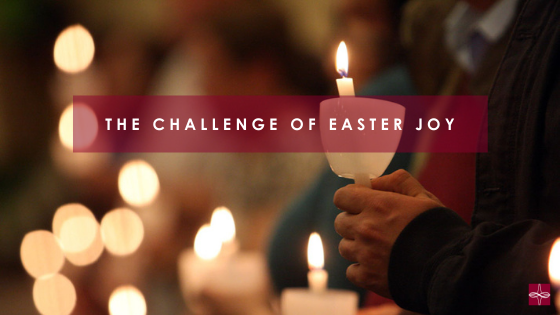

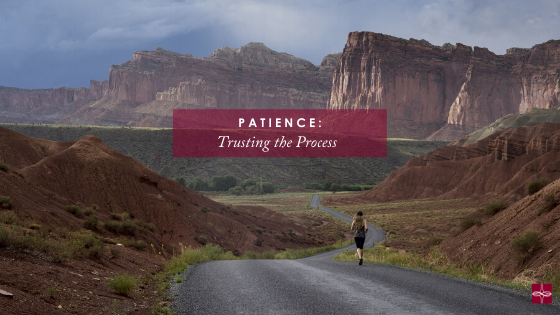

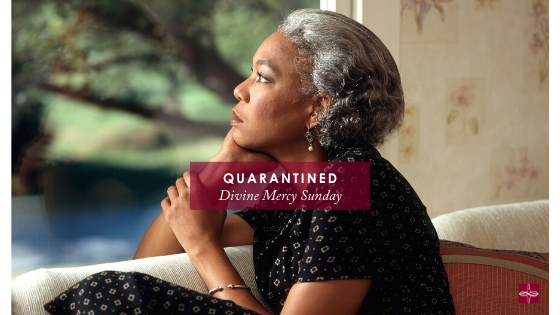

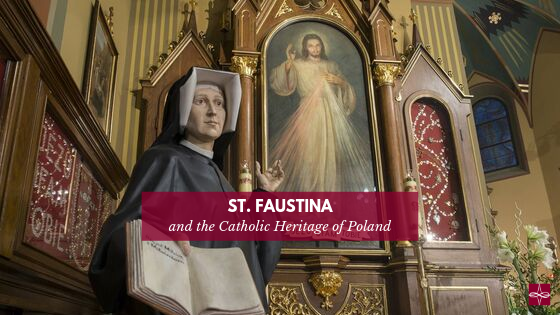

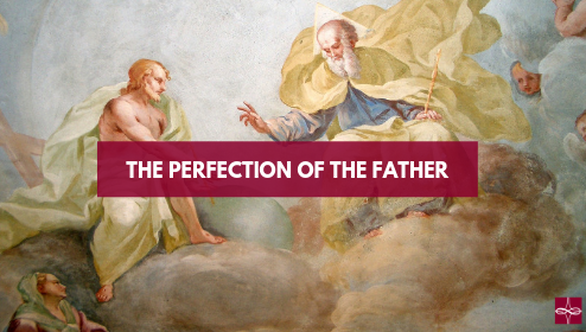

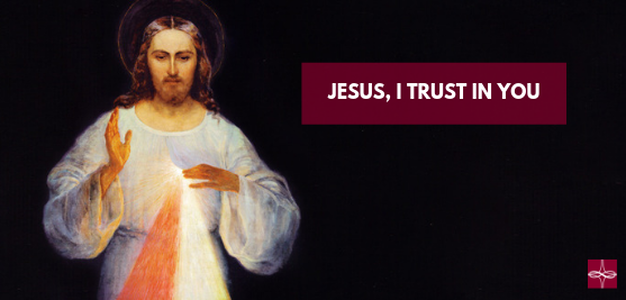

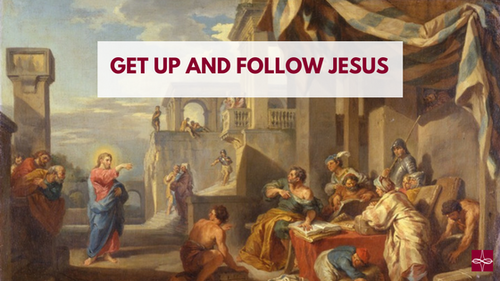

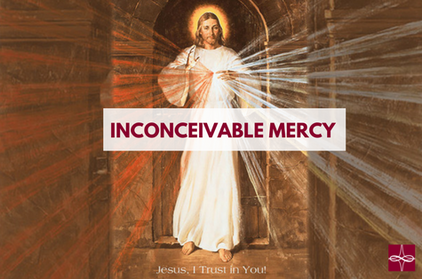

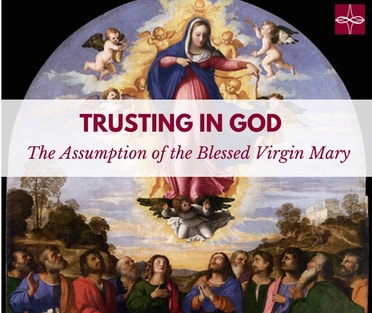

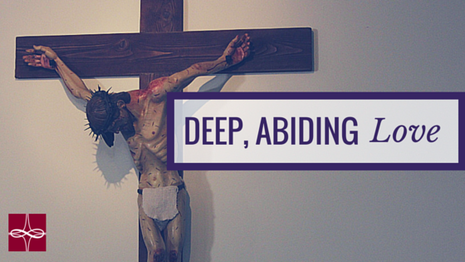


 RSS Feed
RSS Feed